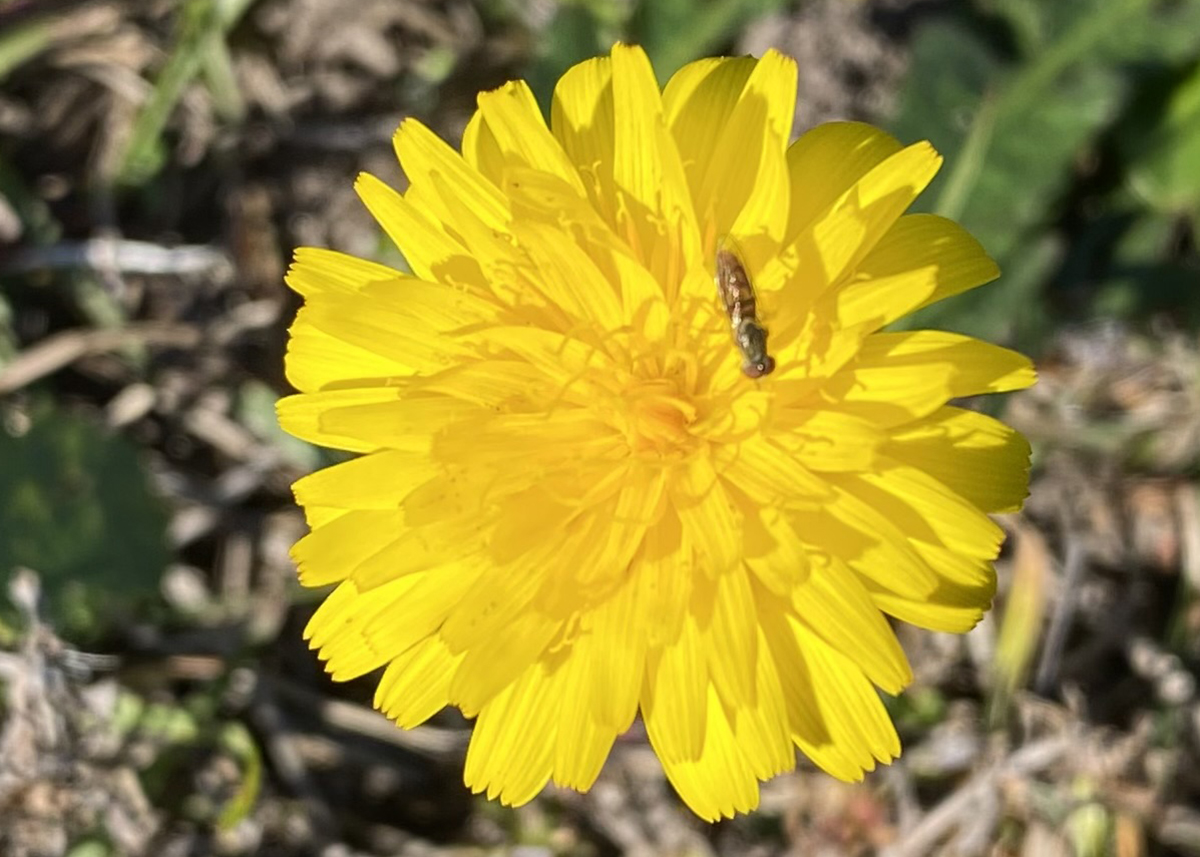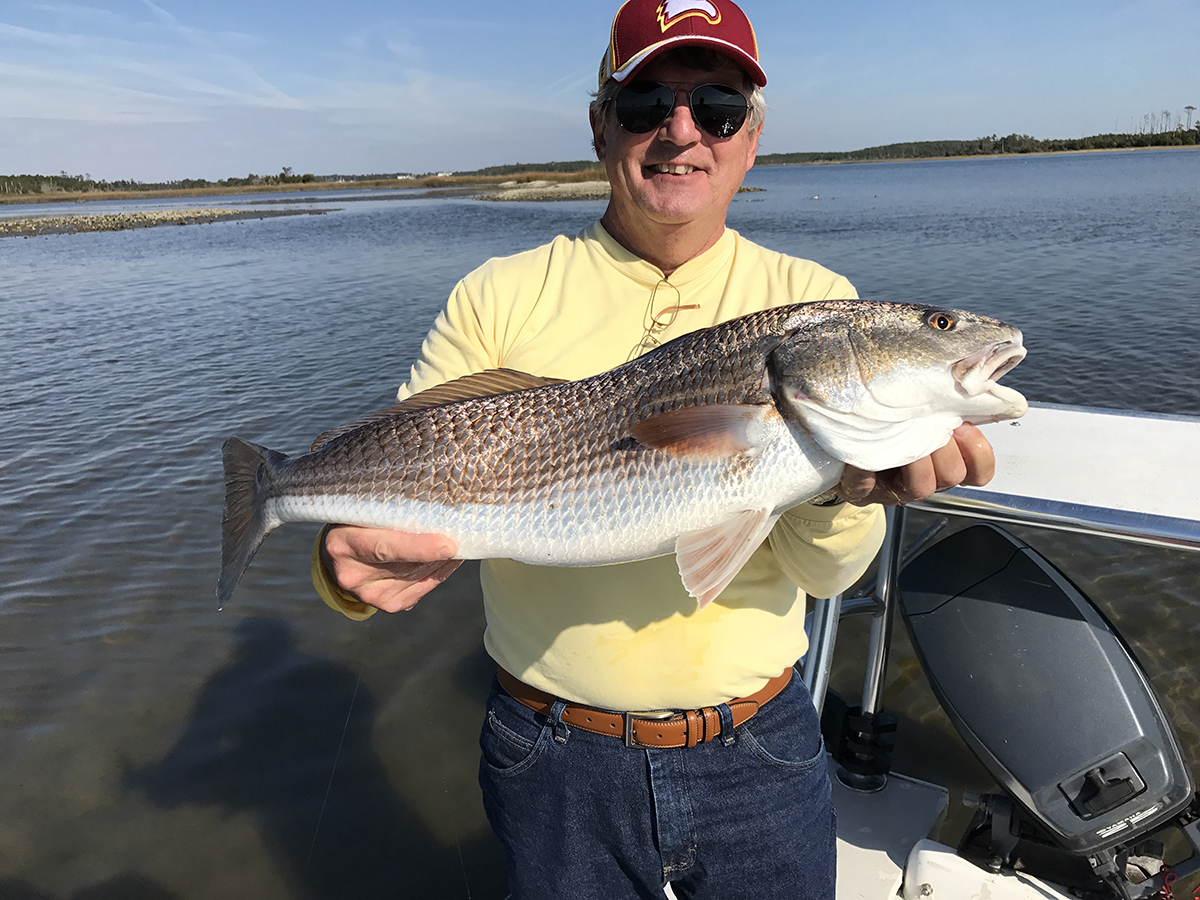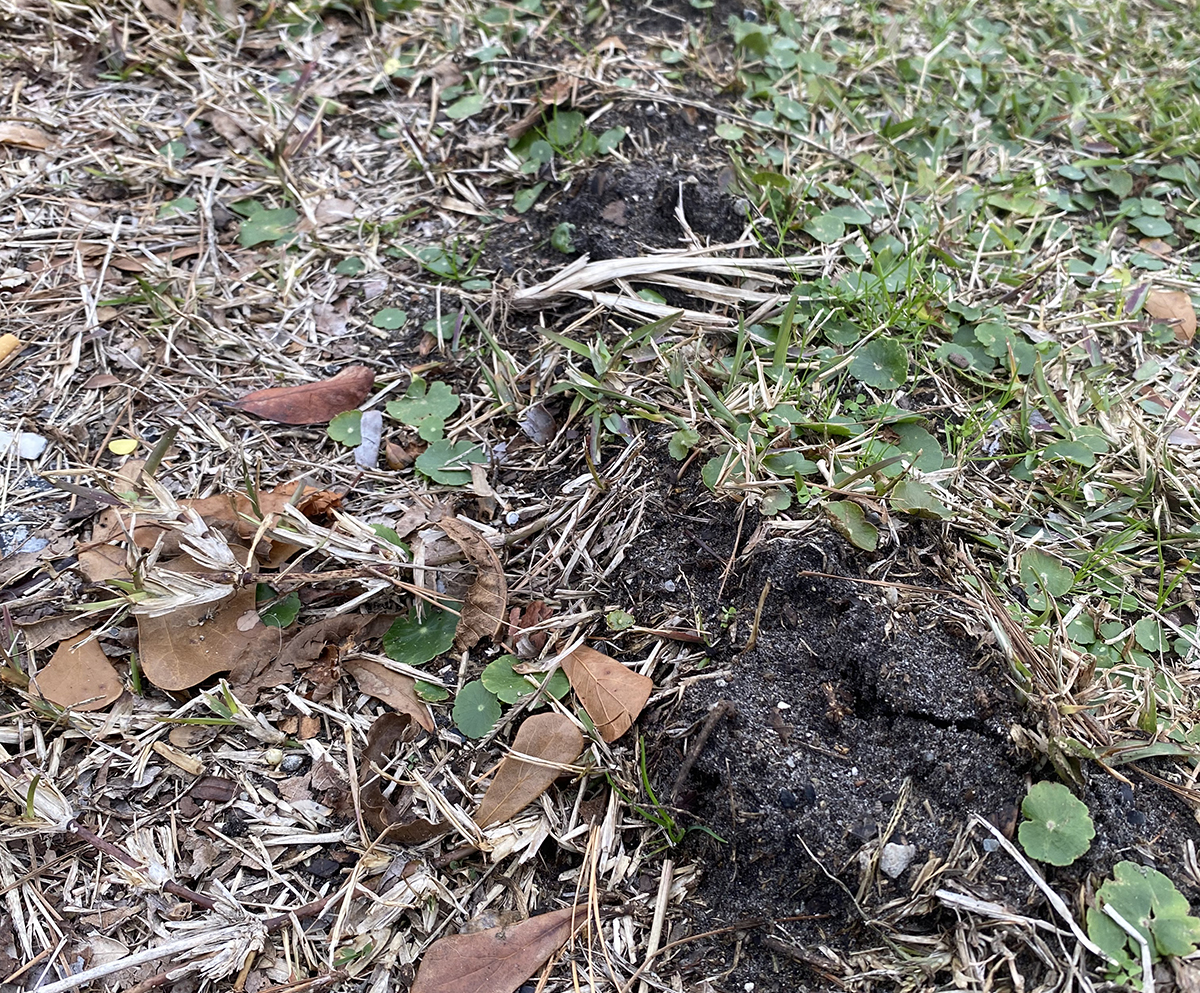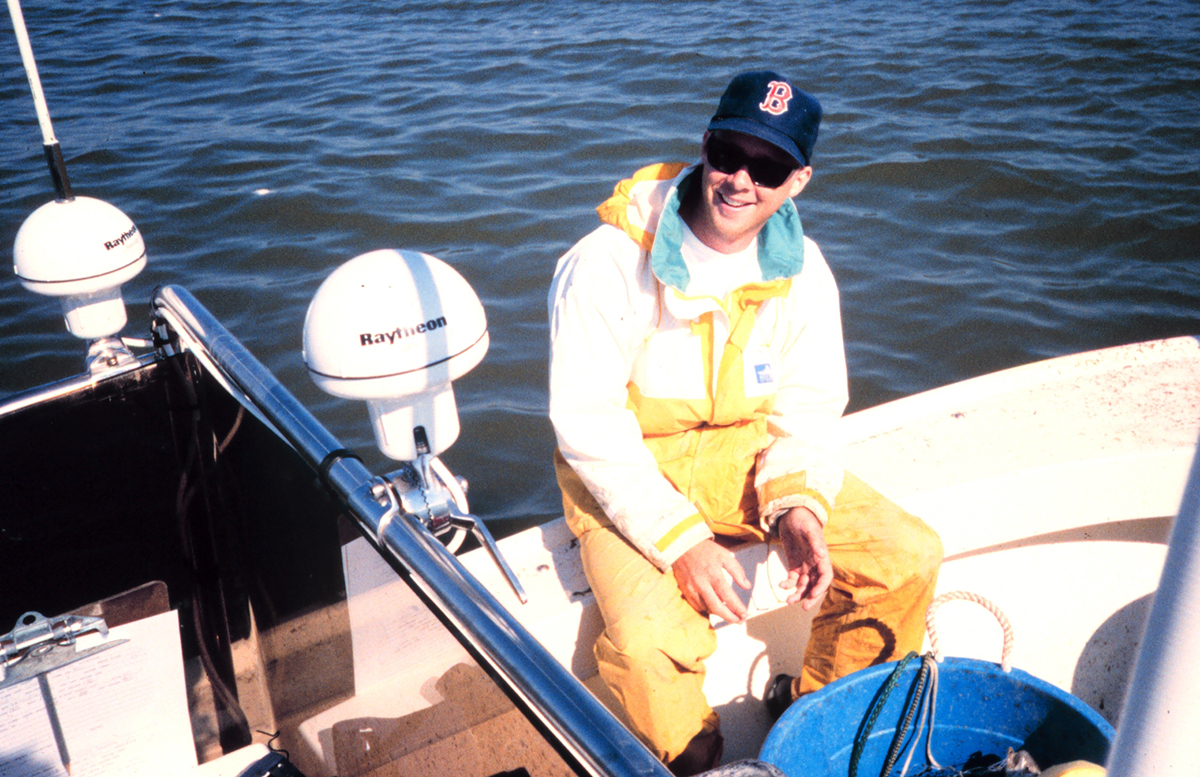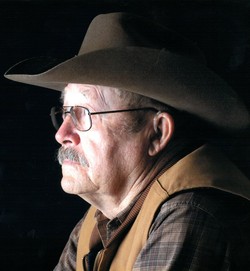
Sylvia tied loose, we nudged her from the comfort of the dock and slid into the night. Gliding smoothly into the darkness gave me a feeling of sudden freedom, a merging with the elements as she swung toward the channel. As captain, I issued my first command, ‘Now sing ye lubbers, else there’ll be no dessert tonight!’”
That’s writer, adventurer Bob Simpson recounting one night of a 25-year tradition he held with a handful of other seasoned watermen of the Crystal Coast – Christmas caroling on Bogue Sound aboard his old wooden boat – the Sylva II.
Supporter Spotlight
Early in 2017, I set about to write a story on the Sylvia, the sight of her with Simpson at the helm – familiar and revered by Down Easters for more than 40 years – but after a few days of digging, it was clear this was the story of Sylvia’s longtime captain as much as it was hers. Robert “Bob” Douglas Simpson passed away at the age of 92 in his home off Pelletier Creek on March 28, but his tales, along with his immeasurable contributions to North Carolina and nature-lovers everywhere are interminable.
He captivated me from the start: “So, you’d like me to weave you a tale or two?” he asked at the onset of our interview, and away he went. At 91, he retained an uncanny knack for painting a picture with words.
“He had such a wonderful way of seeing the world,” said his friend and adventure comrade of nearly 50 years, Gene Huntsman. “It showed in his writing, but it also showed in his conversations – out in the wilderness, out on a boat, he would see what other people couldn’t see; he pointed out what was overlooked as commonplace and made you appreciate the world around you.”
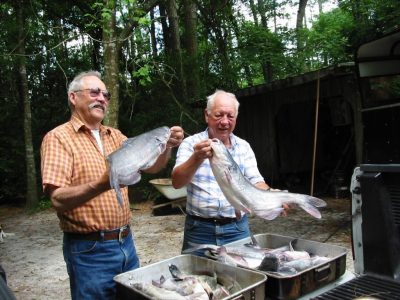
Simpson was born in South Dakota and returned there with his wife Mary after dive-bombing as a Marine in World War II, which he said was “… not a good way to make a living.” He was still on active duty and attending college when his mother was killed in an airplane accident, leaving his younger brother orphaned. He and Mary took a chance on a job offer at Captain Bill’s Restaurant in Morehead City and headed across the country with no place to live and his brother Bill in tow.
Arriving virtually penniless, housing options were limited, but over a cup of coffee at Capt. Bill’s, Bob was asked if he’d be interested in living aboard a boat, “… the best living you’ll ever have,” said the man. They walked out to the dock, where he was offered a deal on a 45-foot cruiser called the Silver Spray. Having no boating experience whatsoever, he looked to Mary who said, “I’m game if you are.” They lived on that boat for 17 years.
“It was a different time,” said his brother Bill, who shares his brother’s wry wit and a similar smile in his voice when hearkening back to simpler times. “The Morehead waterfront was entirely different,” he said, “for a while, Bob worked the waterfront as a photographer, catching the boats as they came in; he and Mary developed the pictures in a darkroom they made in the cabin of the boat, and they would charge $1.50 for an 8 by 10.”
Supporter Spotlight
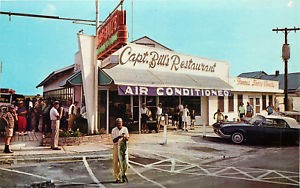
After serving in the Korean War and traveling up and down the coast in the Silver Spray, they landed back in Morehead City. In the late 1960s, Mary’s mother came to live with them, and that’s when, as Huntsman puts it, “they swallowed anchor and moved to the shore.” Like everything in Bob’s life, the house comes with a story too: it was an old military surplus building which he had floated over Bogue Sound by barge to his property off Pelletier Creek.
Soon after, by way of a nasty storm known as the Groundhog Day Gale of 1976, Bob was introduced to the boat that many Core Sounders came to know him for – the Sylvia II. An historic charter fishing boat with even more tales to tell than Bob, she was sunk at the Sanitary dock during the night of the storm. Simpson took her off the owner’s hands a day later for $300. After restoring her, Mary and Bob set off for decades of adventures on the Sylvia II, much of it chronicled in Simpson’s book “When the Water Smokes: Tides and Seasons on a Wooden Boat.”
He had found the best way to make a living while living aboard a boat was to write home about it. He shared his observations in two other books, and about 60 years’ worth of columns as the Raleigh News & Observer’s nature correspondent.
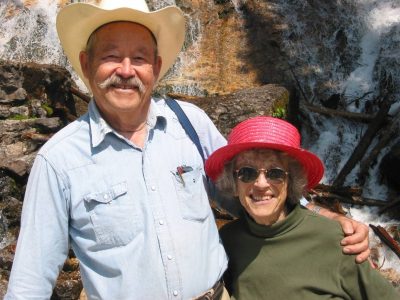
“Those weekly outdoor pieces were like a magic carpet that whisked me away to beautiful and exciting locales … (more important, they) instilled in me a love of all things wild and a determination to do whatever I can to preserve and enhance our natural environment,” wrote outdoor writer Ed Wall, in a remembrance of Simpson.
His ability to affect readers’ relationships with nature aligns him with only a handful of other nature writers throughout history. And that is far from his only contribution. He was instrumental in the establishment of the Cape Lookout National Seashore in the 1960s – even providing the first tours to politicians on his World War II amphibious vehicle (which, his brother Bill said he actually camped on when their boat was full of other guests!)
He, along with three others that called themselves the “Fabulous Fisherman of Morehead City,” founded the Big Rock Blue Marlin Tournament to benefit the fisherman and others working the Morehead City waterfront. Mary went door-to-door collecting the first tournament purse – set for $300. Sixty years later, it is now the largest tournament of its kind in the U.S. and offers a $2 million purse. “It’s gone from trying to help the working charter boatman to something for the moneyed class,” Simpson once said.
He was also instrumental in the establishment of the North Carolina Maritime Museum, and the creation of the Skippers’ Roster Memorial in Morehead City, which honors charter captains with 10 or more years on local waters. In 2006, Bob was inducted into the Order of the Long Leaf Pine, North Carolina’s highest civilian honor.
When I spoke with Bob last March, he said he had enough material for three more books that just needed some “finishing touches.”
“You’re very welcome to take a look,” he said, “I’d even furnish a cup of coffee, but just know I’m getting a little creaky with age.”
I had pitched the story about the Sylvia II, having been introduced to her through my husband, a boatwright who was hired by the boat’s current owner, Bob Graham, to work on her restoration. I had no idea how far this story would take me – I got lost in the rich history of the Core Sound, wooden boats and the waterman’s way of life. So, when Bob invited me up for a cup of coffee, and a look at more of his writing, I jumped at the chance.
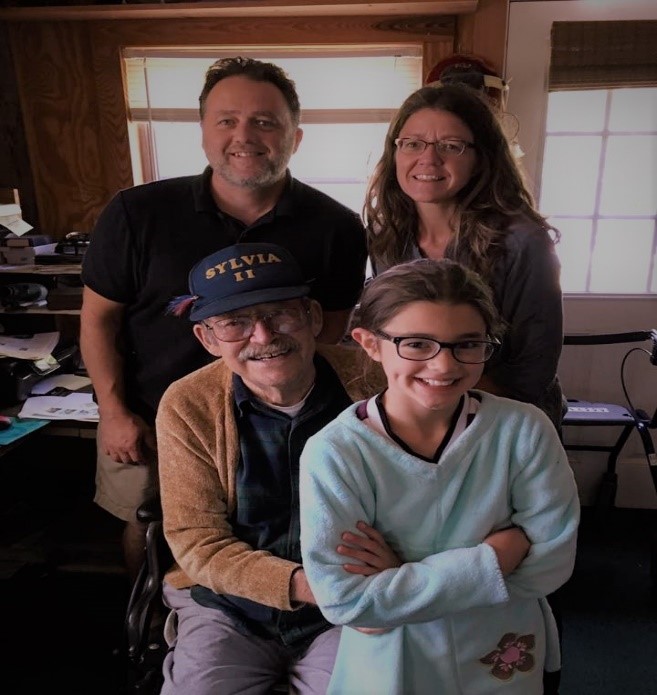
I drove up to Morehead City from Wilmington with my husband and then 9-year-old daughter. I had finished the story, which was published in Coastal Review Online, and brought him a copy. He didn’t seem interested in reading it – and I can’t blame him. He lived it, and told it, already. Much to my delight, he was more interested in telling other stories; the sunroom of his home overlooking Pelletier Creek felt like a museum of his life. I wanted to hear the tale behind every artifact.
My daughter spent most of her time there climbing an old oak tree on the front lawn. I didn’t know it at the time, but that old tree has a story too. Gene Hunstman told me that the electric company once showed up and told Bob they needed to remove some of its limbs. Bob asked if there was any other way to do it. They said no, so he told them to pack up their gear and go. He said he’d lived without electricity before and he could do it again,
“I’d rather have the tree than the electricity,” he said. I spied Bob smiling when he caught a glimpse of my daughter climbing on the tree through his window during our visit. I wonder now, if he was thinking he made the right choice. I know my daughter would think so.
As for the Sylvia II, Hunstman said, “Bob spent so much of his energy and intellect in preserving that termite nest – I would’ve loved to have had his memorial service out on the edge of the water with the Sylvia in the background.”
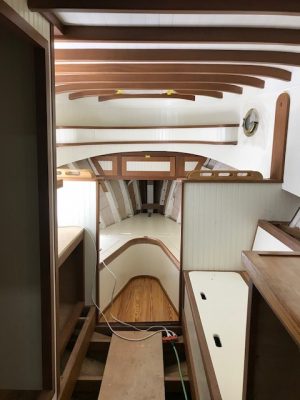
Bob Graham said it was his fervent wish to try and get Sylvia back to Bob Simpson for one last ride around Bogue Sound. “We probably fell only a couple of months short,” he said. “She will return, however, and when she does, I’m looking forward to a wizened old soul guiding my hand on her tiller one more time.”
Huntsman told me that Bob was the cheapest but the most generous man he ever knew. He deeded his home and property to North Carolina State University, which, according to his sister-in-law Susan, will be used to fund a curriculum in his name. Reportedly, developers had offered nearly $2 million for the property. When asked why he would give it away, Simpson said, “I’m giving it away because I’m ornery; I’ve seen too much natural beauty destroyed around here in my life, and I didn’t want to see this property turned into more condos or apartments.” I hope the university heeds his request.
In the brief time I am grateful to have spent with Bob, I felt a sense of ease about him – his face maintained a steady, tranquil smile during conversation.
“The real value is in the experiences involved,” Simpson wrote in his Sept. 24, 2004, column for the News & Observer. “It’s more important to be able to wander freely the wide-open spaces in Carolina or elsewhere, savoring the salt spray or wind in the trees, rod or gun in hand, dog by your side, listening to surf and gull, dove or waterfall – knowing that there are things still wild out there is much more important than filling creel or game bag.”
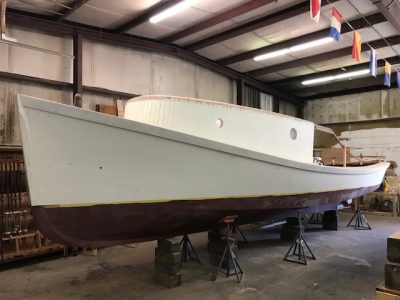
This is not the story of man who died, but one who truly lived. His friend Gene Huntsman affirms, “He just enjoyed life – enjoyed fishing, enjoyed camping, and he just enjoyed sitting with his evening cocktail and watching the sun go down – it was all a great adventure.”
In his book about his life aboard Sylvia, Simpson mused about what adventures might lie ahead for her and her next captain: “If some cool winter day you happen upon a classy antique anchored in a cove and catch the aromas of frying fish, hot biscuits and maybe clam chowder wafting across the water, you can expect to see a fellow with his feet up and a smile on his face, because he made a real good deal.”
Thanks for sharing your adventures with us, Bob. You made a real good deal.



